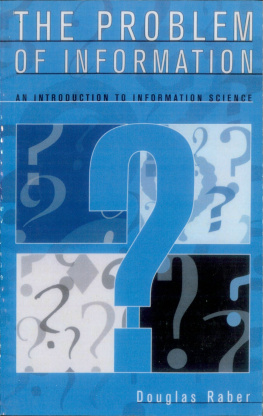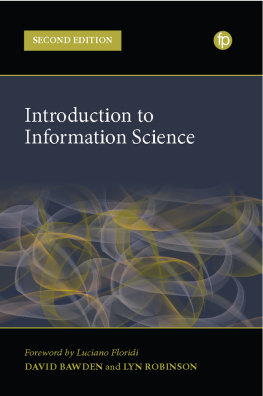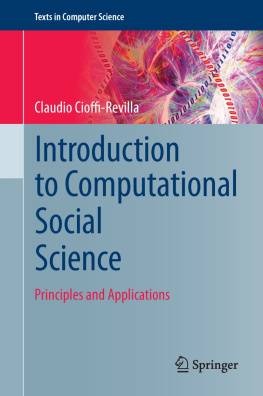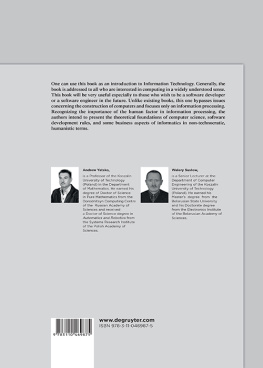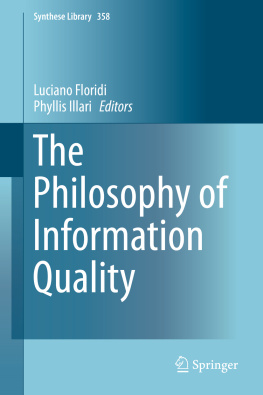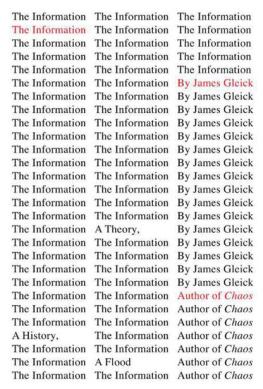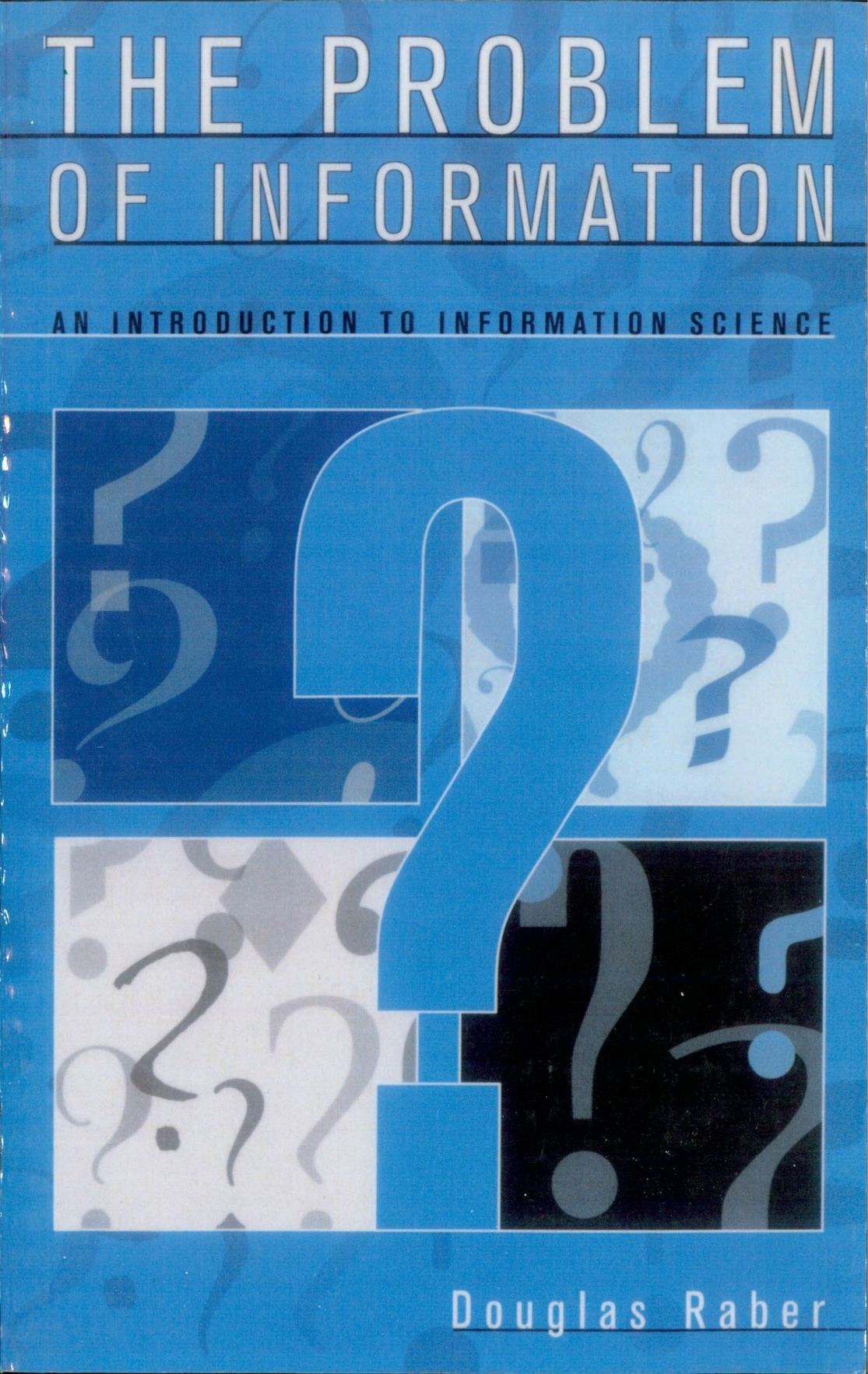Douglas Raber (B.A., M.A., Indiana University; M.A.L.S., Northern Illinois University; Ph.D., Indiana University) has thirteen years of professional experience in academic and public libraries. He is currently an associate professor at the School of Information Sciences, University of Tennessee, Knoxville. His research and teaching interests include American national information and telecommunications policy, public libraries and the social construction of intellectual freedom. He is a member of the Tennessee Advisory Council on Libraries and serves on the editorial board of Reference and User Services Quarterly. He is the author of Librarianship and Legitimacy: The Ideology of the Public Library Inquiry (1997).
Bibliography
Aluri, Rao, D. Alasdair Kemp, and John J. Boll. The Database. Chap. 2 in Subject Analysis in Online Catalogs. Englewood, Colo.: Libraries Unlimited, Inc., 1991.
. Language in Information Retrieval. Chap. 3 in Subject Analysis in Online Catalogs. Englewood, Colo.: Libraries Unlimited, Inc., 1991.
Anderson, James D. Indexing and Classification: File Organization and Display for Information Retrieval. In Indexing: The State of Our Knowledge and the State of Our Ignorance, Proceedings of the 20th Annual Meeting of the American Society of Indexers, edited by Bella Hass Weinberg, 71-82. Medford, N.J.: Learned Information, Inc., 1989.
Asher, R. E., ed. The Encyclopedia of Language and Linguistics, Vol. Oxford: Pergamon Press, 1994.
Barry, Carol L. User-Defined Relevance Criteria: An Exploratory Study. Journal of the American Society for Information Science 45 (April 1994): 149-159.
Barthes, Roland. Elements of Semiology. Trans. Annette Lavers and Colin Smith. New York: Hill and Wang, 1967, 1973.
. The Kitchen of Meaning. The Semiotic Challenge. Trans. Richard Howard. Berkeley, Calif.: University of California Press, 1994.
. The Semantics of Objects. In The Semiotic Challenge. Trans. Richard Howard. Berkeley, Calif.: University of California Press, 1994.
Beghtol, Clare. Bibliographic Classification Theory and Text Linguistics: Aboutness Analysis, Intertextuality and the Cognitive Act of Classifying Documents. Journal of Documentation 42 (June 1986): 84-113.
Belkin, N. J. The Cognitive Viewpoint in Information Science. Journal of Information Science 16(1990): 11-15.
. Progress in Documentation: Information Concepts for Information Science. Journal of Documentation 34 (March 1978): 55-85.
Belkin, N. J., H. M. Brooks, and P. J. Daniels. Knowledge Elicitation Using Discourse Analysis. International Journal of Man-Machine Studies 27 (1987): 127-144.
Belkin, N. J., R. N. Oddy, and H. M. Brooks. ASK for Information Retrieval: Part I. Background and Theory. Journal of Documentation 38 (June 1982):61-71.
. ASK for Information Retrieval: Part II. Results of a Design Study. Journal of Documentation 38 (September 1982): 145-164.
Belkin, N. J., and S. E. Robertson. Information Science and the Phenomenon of Information. Journal of the American Society for Information Science 27 (July-August 1976): 197-204.
Belkin, N. J., T. Seeger, and G. Wersig. Distributed Expert Problem Treatment as a Model for Information System Analysis and Design. Journal of Information Science 5 (1983): 153-167.
Beniger, James R. Information and Communication: The New Convergence. Communication Research 15 (April 1988): 198-218.
Berger, Peter L., and Thomas Luckmann. The Social Construction of Reality. Garden City, N.Y.: Doubleday Anchor Books, 1967.
Bingi, R., Deepak Khazanchi, and Surya B. Yadav. A Framework for the Comparative Analysis and Evaluation of Knowledge Representation Schemes. Information Processing & Management 31, no. 2(1995): 233-247.
Bookstein, A. Explanations of Bibliometric Laws. Collection Management 3 (Summer/Fall 1979): 151-162.
Borgman, Christine L. Bibliometrics and Scholarly Communication: Editors Introduction. Communication Research 16 (October 1989): 583-599.
Borko, Harold. Information Science: What Is It? In Key Papers in Information Science, edited by A. W. Elias, 1-3. Washington, D.C.: American Society for Information Science, 1971.
. Towarda Theory of Indexing. Information Processing & Management 13, no. 6 (1977): 355-365.
Borko, Harold, and C. L. Bernier. Indexing Concepts and Methods. Newe York: Academic Press, 1978.
Bouissac, Paul, ed. Encyclopedia of Semiotics. Oxford: Oxford University Press, 1998.
Bradford, S. C. Sources of Information on Specific Subjects. Engineering 137 (1935): 85-86.
Brier, Soren. Cybersemiotics: A New Interdisciplinary Development Applied to the Problems of Knowledge Organization and Document Retrieval in Information Science. Journal of Documentation 52 no. 3 (September 1996): 296-344.
. A Philosophy of Science PerspectiveOn the Idea of a Unifying Information Science. In Conceptions of Library and Information Science: Historical, Empirical and Theoretical Perspectives, edited by Pertti Vakkari and Blaise Cronin, 97-108. London: Taylor Graham, 1992.
Brookes, Bertram C. The Foundations of Information Science: Part I. Philosophical Aspects. Journal of Information Science 2 (1980): 125-133.
. Robert Fairthorne and the Scope of Information Science. Journal of Documentation 30 (June 1974): 139-152.
Brooks, H.M. Expert System and Intelligent Information Retrieval. Information Processing & Management 23, no. 4 (1987): 367-382.
Buckland, Michael K. Information and Information Systems. New York: Greenwood Press, 1991.
. Information as Thing. Journal of the American Society for Information Science 42 (June 1991): 351-360.
Budd, John M. An Epistemological Foundation for Library and Information Science. Library Quarterly 65, no. 3 (1995): 295-318.
. User-Centered Thinking: Lessons from Reader-Centered Theory. RQ 34 (Summer 1995): 487-496.
Bush, Vannevar. As We May Think, Atlantic Monthly (July 1945): 101-108.
Cleveland, Donald B., and Ana D. Cleveland. Introduction to Indexing and Abstracting. Littleton, Colo.: Libraries Unlimited, 1983.
Cleverdon, Cyril W. The Cranfield Tests of Index Language Devices. Aslib Proceedings 19 (June 1967): 173-194.
. On the Inverse Relationship of Recall and Precision. Journal of Documentation 28 (September 1972): 195-201.
. Review of the Origins and Development of Research. Aslib Proceedings 22 (November): 538-549.
Cole, Charles. Operationalizing the Notion of Information as a Subjective Construct. Journal of the American Society for Information Science 45 (August 1994): 465-476.
Cool, Colleen. Information Retrieval as Symbolic Interaction: Examples from Humanities Scholars. In Proceedings of the 56th Annual Meeting of the American Society for Information Science, edited by Susan Bonzi, 274-277. Medford, N.J.: Learned Information, Inc., for American Society for Information Science, 1993.
Cooper, W. S. A Definition of Relevance for Information Retrieval. Information Storage and Retrieval 7 (1971): 19-37.
Croft, W. Bruce. Approaches to Intelligent Information Retrieval. Information Processing & Management 23, no. 4 (1987): 249-254.
. Automatic Indexing. In Indexing: The State of Our Knowledge and the State of Our Ignorance, Proceedings of the 20th Annual Meeting of the American Society of Indexers, edited by Bella Hass Weinberg, 86-100. Medford, N.J.: Learned Information, Inc., 1989.
Croft, W. Bruce, and R. H. Thompson. I R: A New Approach to the Design of Document Retrieval Systems. Journal of the American Society for Information Science 38 (November 1987): 389-404.

